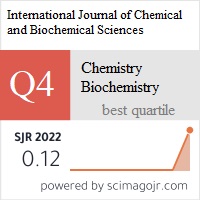International Journal of Chemical and Biochemical Sciences (ISSN 2226-9614)[/vc_column_text][/vc_column][/vc_row]
VOLUME 25(19) (2024)
Evaluation of the accelerate stunting reduction program through stunting care houses (Rumah Pesta) Wakatobi district
Alimudin1, Balqis2, Amran Razak3, Indar4, Suriah5, Agus Bintara Birawida6,
Anwar Mallongi7
1Faculty of Public Health, Hasanuddin University, Indonesia
2,3,4Faculty of Public Health, Hasanuddin University, Indonesia
5Faculty of Public Health, Hasanuddin University, Indonesia
6,7Faculty of Public Health, Hasanuddin University, Indonesia
Abstract
Wakatobi Regency as an island region in 2022 has a stunting prevalence of 29.9%, higher than the average prevalence rate for Southeast Sulawesi province of 27.7%. This regency has a high commitment to accelerating the reduction of stunting prevalence through the strategic initiative of stunting care home innovation activities (Rumah Pesta). Serving as a venue for organizing the mobilization and execution of internalizing the acceleration of the reduction of stunting through synchronization and cooperation between stakeholders, village administrations, and agencies. To evaluate the stunting reduction acceleration program through the Stunting Care House (Rumah Pesta) Wakatobi Regency. Qualitative descriptive research, content analysis was carried out on the conditions of natural objects from the context in which the event occurred in an effort to describe the incident through key informants, main informants and supporting informants based on knowledge about the stunting reduction acceleration program policy. This research uses in-depth interviews with tools in the form of recording devices, interview guides, review of rules and documents to answer research objectives using the CIPP model evaluation approach. In the context evaluation, the regional stunting reduction acceleration program policy has influenced the prevalence of stunting through the the Stunting Care House or Rumah Peduli Stunting (Rumah Pesta) innovation program which was implemented through the Decree of the Head of the P2 & KB Department. Input evaluation: The main budgetary support for activities comes from self-help, including the APBN and APBD budgets through related SKPD intermediaries who are directly involved in stunting activities. Human resource capacity is inadequate and there is no support for sustainable training programs through Rumah Pesta. Support for facilities and infrastructure for service activities in the building is inadequate, there are facilities to support stunting activities. Evaluation process: Activity planning house party activities are participatory in nature as a form of implementation of policies to accelerate stunting reduction to realize the mobilization of strategic initiative steps by the relevant SKPD leaders in the form of innovation activities, referring to 29 main indicator service coverage designed through creativity in the form of independent activities with at-risk families, local cultural approaches. Product Evaluation: Contributing directly to reducing the prevalence of stunting in Wakatobi district through interventions through assistance activities for at-risk families which are still ongoing today, Sustainability of programs or activities to accelerate stunting reduction requires synergy and support from data sources, use of accurate data through a good human resource availability approach, supporting infrastructure that meets standards at all levels of implementation of activities to accelerate stunting reduction.
Keywords: Program evaluation, house parties, stunting reduction, sustainable training.
Full length article – PDF *Corresponding Author, e-mail: alimudin.rsudwakatobi@gmail.com Doi # https://doi.org/10.62877/15-IJCBS-24-25-19-15
International Scientific Organization- Atom to Universe
Journals
- International Scientific Organization
- International Journal of Chemical and Biochemical Sciences (IJCBS)
- Volume 27 (2025)
- Volume 26 (2024)
- Volume 25 (2024)
- Volume 24 (2023)
- Volume 23 (2023)
- Volume 22 (2022)
- Volume 21 (2022)
- Volume 20 (2021)
- Volume 19 (2021)
- Volume 18 (2020)
- Volume 17 (2020)
- Volume 16 (2019)
- Volume 15 (2019)
- Volume 10 (2016)
- Volume 14 (2018)
- Volume 13 (2018)
- Volume 12 (2017)
- Volume 11 (2017)
- Volume 9 (2016)
- Volume 8 (2015)
- Volume 7 (2015)
- Volume 6 (2014)
- Volume 5 (2014)
- Volume 4 (2013)
- Volume 3 (2013)
- Volume 2 (2012)
- Volume 1 (2012)
- Store
- Cart
- Account


